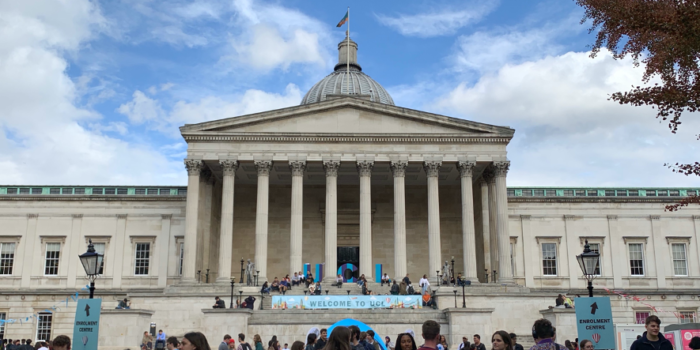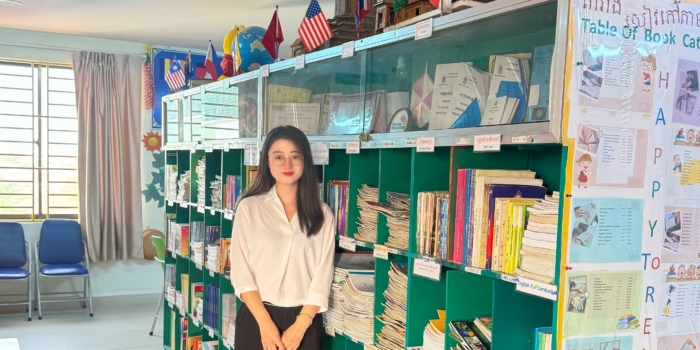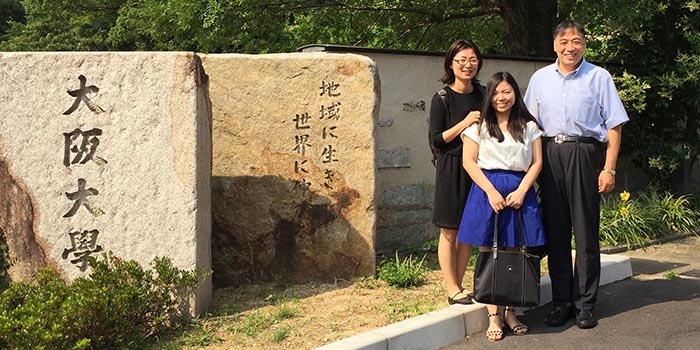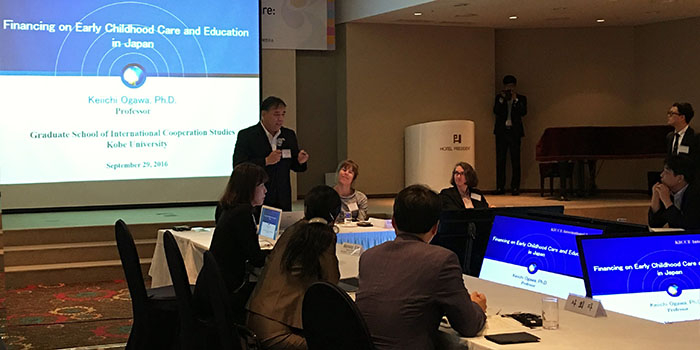In October 2020, I completed my MA in Education and International Development with distinction at University College London (UCL) Institute of Education in the UK – a master’s degree I started in September 2019 after obtaining my first master’s degree in International Studies at Graduate School of International Cooperation Studies (GSICS) at Kobe University in 2019. I was also awarded a distinction for my dissertation about inclusion in early childhood education. This journey would not be possible without enormous support from my great supervisor, lecturers and peers at UCL. The unprecedented disruption caused by the COVID-19 pandemic has tested me in many ways, but the proactive attitude I had developed at Ogawa seminar at GSICS has helped me think ahead, work hard and open the doors to new opportunities. This report is a summary of my experience at UCL Institute of Education.
Brief Introduction of UCL Institute of Education
The Institute of Education (IOE) was founded in 1902, and joined UCL as a single faculty school in 2014. The IOE has been ranked as the world number one for Education for the 7th years in a row since 2014, in the QS World University Rankings. Located in the heart of central London, the IOE is a global hub of debate in education and influences educational policy across the world. The IOE currently has approximately 8,000 students including international students from over 100 countries. Some master’s programmes require experiences in low- and middle-income countries. My programme therefore welcomed students with various backgrounds, including education professionals from the Ministry of Education, United Nations agencies and other international organisations.
My Study at UCL
Through my study at UCL, I was able to deepen my theoretical and practical understanding of the issues in education and international development, especially in conflict affected settings. In this section, I summarise the key learnings from the four modules I took, and briefly explain how I developed my dissertation.
From September to December 2019, I studied the core module on Education and International Development: Concepts, theories and issues which provides critical awareness about key theories and contemporary issues of educational policy and practice in low and middle-income countries. In addition to face-to-face lectures, collaborative activities helped me to learn more, such as a peer review of the draft of assignment essays and weekly reading group activities to discuss key learnings from the required readings before classes.
In another module, Planning for Education and Development, I learned practical skills such as how to apply the OECD DAC Framework to evaluate projects from different perspectives including the impact, relevance, efficiency, effectiveness and sustainability. In the end of the module, we had a group presentation competition, and each team was tasked with developing an education project to rebuild a post-conflict country. To give a group presentation in one month, I actively engaged in consolidating different ideas and opinions from seven students in my group, who were very cooperative and had rich experiences in the development sector. As a result, our team won the competition by gaining good evaluation from two professors, a lecturer, and other students in the module.
From January to April 2020, I studied a module on Education, Conflict and Fragility which is led by Professor Tejendra Pherali, who also teaches an intensive course on Education, Conflict and International Development annually at GSICS, Kobe University. After completing his course at GSICS in 2018, I was able to better understand his comprehensive module at UCL and how to apply theories to critically analyse educational issues in conflict affected areas. The module invited students to attend the seminar held by the Save the Children UK at IOE, and it was a great opportunity to gain practical knowledge in operations of educational projects. The last module, Children’s Rights in Global Perspectives, was the intensive module which gave me a very good understanding of dilemmas to apply the concept of children’s rights in different cultural settings.
After strengthening my analytical skills through these modules, I developed my dissertation which focuses on policies and practice on inclusion in early childhood education and development in post-conflict Nepal. My research critically analysed debates about inclusion with regards to ethnic, caste, gender and disabilities related problems. Based on the critical analysis, I proposed a new conceptual framework to better understand the mechanism for equitable access to early childhood education in Nepal.
My Experience of Learning during COVID-19 and New Opportunities
I am one of the many students whose education has been affected by the COVID-19 outbreak. Even though I had to move back to Japan, I was able to continue to attend classes at UCL through online learning platforms. Moreover, I gained opportunities to join and contribute to two educational projects led by professors from UCL. I also stayed proactive, and published three articles on education, including the one about transformations in education in Japan because of the COVID-19. After completing my dissertation, I obtained an educational consultancy position at World Bank Indonesia. My key task focuses on promoting inclusive education.
Overall, pursuing my second master’s degree at UCL Institute of Education was a life-changing experience. One of the key learnings is that reappreciating the value of education, not just as a tool for social mobility, but as a process for implementing social justice by enhancing inclusion and encouraging children and young people to become agents of social change to promote sustainable peace. This perspective would be more important than ever amid the pandemic crisis. I am very grateful to Professor Keiichi Ogawa for his continuous support in developing my analytical skills at GSICS and in materialising my study at UCL. My gratitude also goes to all the other professors who gave me kind advice at GSICS and my classmates from the Ogawa seminar for cheering me up for the last two years.
Authored by Anna Hata (Doctoral Student)

Related







